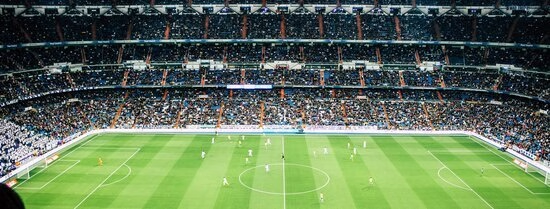Forced labour, corruption, deaths, and massive human rights violations: the World Cup in Qatar is the most controversial World Cup ever. In Studio Erasmus, sports philosopher dr. Sandra Meeuwsen and writer and sports historian Jurryt van de Vooren answer the question of whether we should turn on the TV during the World Cup.
The first match will be played in Qatar on 20 November 2022. There is a lot at play: the World Cup is directly responsible for thousands of workers being seriously injured and killed in construction work, says Jurryt van de Vooren.
Sandra Meeuwsen: "We so badly want this event to take place. And because of that, regardless of what actually happened, you could say that people are willing to turn a blind eye." By this, Meeuwsen is referring to the sports executives who have chosen to let the World Cup take place in Qatar. In such a major sporting event as the World Cup, the sports philosopher says sport is the most important byproduct.
"I don't consider the World Cup a sports event at all either," adds Jurryt van de Vooren. "There are athletes present, but it is an event where politics is played. Huge sums of money are made. The World Cup is much more a commercial-economic event than a sporting event," the sports historian believes.
Why is there so little protest?
In the Netherlands, the amount of criticism of the World Cup is relatively low. According to the sports philosopher, this has to do with our relationship with the World Cup. "In the Netherlands, local and national football is much more alive. We are less interested in international football. At the same time, you do see initiatives popping up left and right." For example, the Danish team is going to play in a black shirt. "You can make fun of it, but it is a form of political agency which we can't yet match'', says Meeuwsen.
To turn on the TV or not
When asked whether people should watch the World Cup, Meeuwsen does not think it is up to her to judge. "Everyone has their own conscience. If it's up to me, I won't watch. But if the Netherlands reaches the final, of course there will also be a moment of truth for me. Every person finds their own way, and it's about what you find most important. Is that your own pleasure? Together in the pub with friends? Or do you also want to embody another ideal, another value?"
According to Van de Vooren, the mere fact that the question is asked shows the problem FIFA has given us as football fans: "It leaves us with a knot in our stomach watching what we like more than anything else. We are facing the biggest problem in football in the last 50 years, and I think an individual boycott is the smallest solution you can find. I think a big problem needs a buig solution."
25% of Dutch people do not watch
Recent research by Dutch research agency Ipsos shows that a quarter of Dutch people will not watch the matches of the Dutch national team. In an article by Dutch news network RTL Nieuws, Sandra Meeuwsen says it is important to have a conversation with your children – but also with family and friends – about why you are boycotting the World Cup. "Refer to the thousands of workers who died and explain that you cannot sleep peacefully when, by watching this event, you contribute to the revenue model."
Because not watching the World Cup can have an impact, she argues. "I am not naive but refuse to go along with the cynical 'the harm is already done'. You can use your role as a supporter. If we don't watch en masse, this party will collapse."

- Researcher
- More information
Read the full article at RTL Nieuws (in Dutch).
- Related content

